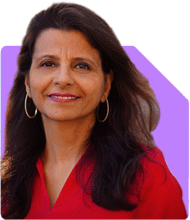Widowed NRI in Bangalore with health issues seeks investment advice for retirement income
Ramalingam Kalirajan |6326 Answers |Ask -Follow
Mutual Funds, Financial Planning Expert - Answered on Sep 02, 2024
He has an MBA in finance from the University of Madras and is a certified financial planner.
He is the director and chief financial planner at Holistic Investment, a Chennai-based firm that offers financial planning and wealth management advice.... more

Dear Sir, I was an NRI, worked abroad for 35 years and now retired settled in my home town Bangalore. Lost my parents and lastly my wife also 4 years back due to cancer, presently widowed. Thinking of remarriage, then I am scared with not much income and have to bear extra expenses for the new bride. Also, as I cannot cook and find it difficult with my health issues as I eat out all the time. Suffering from CABG done in 2001, enlarged prostrate and spleen, no gall bladder, BP, Diabetic, Thyroid, Liver shrung working minimal, etc. I have a son who is a Mechanical Engineer working in Godrej and Boyce as Asst. Manager, and now doing his MBA from IIM Ahmedabad and also working managing with his loan for studies etc., and cannot contribute anything to home. I have two apartments one where I am staying and the other is for rent generating IRS. 26,000/per month, which is my only earning. I have 20 Lakhs in bank and would appreciate if you could advice me how to invest and generate income per month to survive and manage my expenses. Look forward to hearing from you soon. Regards MM
You have built a stable foundation with two apartments, a son pursuing higher education, and Rs 20 lakhs in the bank. Your rental income of Rs 26,000 per month is your primary source of income.
Given your health conditions, you need a financial strategy that ensures stability, covers medical expenses, and allows for a comfortable lifestyle.
Let us discuss how to manage your finances to meet your needs.
Monthly Income Management
First, let's address your current income. With a monthly rental income of Rs 26,000, you have a steady but limited cash flow.
To supplement this, your Rs 20 lakhs in the bank can be used to generate additional monthly income. You may consider a systematic withdrawal plan (SWP) through mutual funds.
SWPs allow you to invest in a balanced or conservative mutual fund and withdraw a fixed amount monthly. This method can provide you with an additional income stream while allowing the remaining corpus to grow.
Three line spaces
Assessing Medical Expenses
Your health concerns are significant and may require regular medical care. It is crucial to ensure you have a health insurance plan that covers your needs.
If you don’t have an existing health insurance policy, purchasing one may be challenging due to your age and health conditions. However, you can explore senior citizen health plans that might offer partial coverage.
Additionally, it may be wise to allocate a portion of your Rs 20 lakhs as an emergency medical fund. This can be invested in liquid funds, which offer safety and quick access to funds.
Three line spaces
Evaluating Remarriage and Financial Impact
You mentioned considering remarriage, which is an important life decision. This could potentially increase your expenses, but it could also provide companionship and shared responsibilities.
It’s important to have an open conversation with your potential partner about financial expectations. Discuss how expenses will be shared, and ensure that you are both comfortable with the arrangement.
If you decide to proceed, you may need to adjust your budget to accommodate new expenses. This might include additional living costs, healthcare, and daily needs.
Three line spaces
Supporting Your Son's Education
Your son is pursuing an MBA from a prestigious institution. While he is managing his expenses through loans, it is commendable that you are supporting him emotionally.
However, given your current situation, it is advisable to focus on your financial stability first. Ensure that your investments and income are sufficient to meet your needs before considering any additional support for your son.
He is likely to secure a well-paying job after completing his MBA, and he should be able to manage his finances independently.
Three line spaces
Investing Your Rs 20 Lakhs
Let's discuss how to invest your Rs 20 lakhs. The primary goal is to generate a steady income while preserving your capital.
Systematic Withdrawal Plan (SWP): As mentioned earlier, SWPs from a balanced or conservative mutual fund can provide monthly income. You can decide on the withdrawal amount based on your monthly needs.
Debt Mutual Funds: These funds invest in bonds and other fixed-income securities. They are less volatile and can provide moderate returns. You can consider investing a portion of your Rs 20 lakhs in debt funds for a regular income.
Fixed Deposits (FDs): Although you have previously invested in FDs, they still offer safety and guaranteed returns. You can ladder your FDs to have them mature at different intervals, ensuring a steady cash flow.
Senior Citizen Savings Scheme (SCSS): This is a government-backed scheme specifically for senior citizens. It offers regular income and is a safe investment. You can consider investing a portion of your Rs 20 lakhs in SCSS for a steady income.
Three line spaces
Reducing Dependence on Eating Out
As you have mentioned difficulties with cooking and health concerns, eating out regularly is not ideal. It could strain your budget and affect your health.
You may consider hiring a cook or a part-time helper. This would reduce your dependence on outside food and could be more cost-effective in the long run.
Alternatively, you could explore meal delivery services that offer home-cooked meals. This would ensure you are eating healthier food without the hassle of cooking.
Three line spaces
Creating a Contingency Plan
Given your health issues, it’s essential to have a contingency plan in place. This could include:
Power of Attorney: Consider granting a trusted family member, like your son, a power of attorney for your financial matters. This ensures that your finances are managed according to your wishes if you are unable to do so.
Will: Ensure that you have an updated will in place. This will help avoid any disputes and ensure that your assets are distributed according to your wishes.
Medical Directives: Consider creating a living will or medical directive. This document outlines your wishes for medical treatment if you cannot communicate them.
Three line spaces
Avoiding Real Estate Investments
Given your current situation, it’s advisable to avoid further real estate investments. Property management can be challenging and may not provide the liquidity you need at this stage in life.
Focus on liquid and safe investments that can provide regular income and meet your immediate needs.
Three line spaces
Addressing Direct Stocks and Profit Booking
You mentioned investing in direct stocks but have not booked profits yet. This could be risky, as markets can be volatile.
You may consider consulting with a Certified Financial Planner to evaluate your stock portfolio. They can help you identify the right time to book profits and reinvest the proceeds in safer options like mutual funds or debt instruments.
It’s essential to have a strategy for profit booking to avoid potential losses and ensure that your investments align with your financial goals.
Three line spaces
Planning for Long-Term Care
Your health issues may require long-term care in the future. It’s essential to plan for this possibility to ensure that you have the financial resources needed.
Consider researching long-term care options, such as in-home care services, assisted living, or nursing homes. Depending on your needs, you may want to allocate funds for this purpose.
Additionally, it may be wise to discuss these plans with your son, so he is aware of your wishes and can assist in decision-making if needed.
Three line spaces
Final Insights
Your financial situation requires careful planning, considering your health, lifestyle, and future needs. Your primary goal should be to secure a steady income while preserving your capital.
Investing in a systematic withdrawal plan, debt funds, and senior citizen schemes can provide regular income. Avoid real estate and focus on liquid investments.
Address your health and long-term care needs by setting aside funds for medical expenses and considering long-term care options.
Finally, ensure that you have a contingency plan, including power of attorney, a will, and medical directives.
Best Regards,
K. Ramalingam, MBA, CFP,
Chief Financial Planner,
www.holisticinvestment.in
You may like to see similar questions and answers below
Ramalingam Kalirajan |6326 Answers |Ask -Follow
Mutual Funds, Financial Planning Expert - Answered on Jun 18, 2024
Ramalingam Kalirajan |6326 Answers |Ask -Follow
Mutual Funds, Financial Planning Expert - Answered on Jul 25, 2024
Ramalingam Kalirajan |6326 Answers |Ask -Follow
Mutual Funds, Financial Planning Expert - Answered on Aug 01, 2024
Ramalingam Kalirajan |6326 Answers |Ask -Follow
Mutual Funds, Financial Planning Expert - Answered on Aug 13, 2024
Komal Jethmalani |343 Answers |Ask -Follow
Dietician, Diabetes Expert - Answered on Sep 18, 2024
Komal Jethmalani |343 Answers |Ask -Follow
Dietician, Diabetes Expert - Answered on Sep 18, 2024
Komal Jethmalani |343 Answers |Ask -Follow
Dietician, Diabetes Expert - Answered on Sep 18, 2024
Komal Jethmalani |343 Answers |Ask -Follow
Dietician, Diabetes Expert - Answered on Sep 18, 2024
Komal Jethmalani |343 Answers |Ask -Follow
Dietician, Diabetes Expert - Answered on Sep 18, 2024
Komal Jethmalani |343 Answers |Ask -Follow
Dietician, Diabetes Expert - Answered on Sep 18, 2024
Komal Jethmalani |343 Answers |Ask -Follow
Dietician, Diabetes Expert - Answered on Sep 18, 2024
Milind Vadjikar |150 Answers |Ask -Follow
Insurance, Stocks, MF, PF Expert - Answered on Sep 17, 2024
Dr Dipankar Dutta |609 Answers |Ask -Follow
Tech Careers and Skill Development Expert - Answered on Sep 17, 2024
Milind Vadjikar |150 Answers |Ask -Follow
Insurance, Stocks, MF, PF Expert - Answered on Sep 17, 2024























